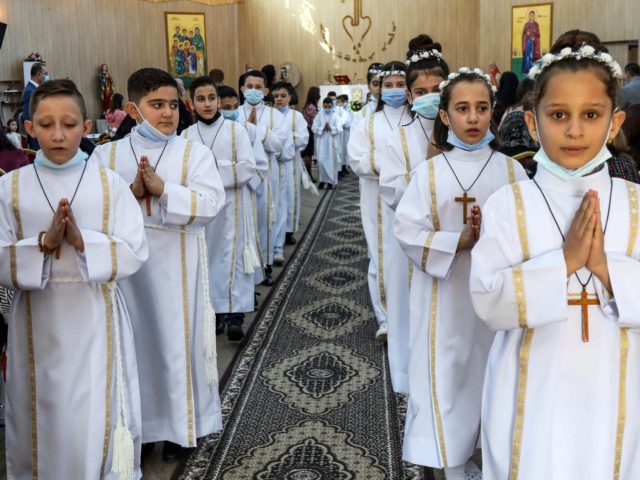ROME — The archbishop of Mosul, Iraq, has expressed his people’s joy over the announcement of a March visit by Pope Francis, the first of its kind by any pontiff.
“We are really happy to know that Pope Francis will come to Iraq in March next year and in particular to Mosul and the Nineveh Plain,” said archbishop Najib Mikhael Moussa in an interview Monday with the news agency of the Italian Catholic Bishops (SIR).
“Our faithful are dancing for joy at this news,” Archbishop Moussa said, adding his personal hope “that many will be able to return to their homes and villages.”
The Mosul archbishop called the papal visit “symbolic” and particularly opportune, coming “at a special moment for all of Iraq and especially for us Christians.”
Moussa also highlighted the ecumenical and interreligious significance of the visit, illustrated by the itinerary the pope has chosen.
“The Pope will start from Ur, in the south, which is the place where Abraham left for his mission,” the archbishop noted. “By visiting Ur before continuing to Mosul and then climbing up to Kurdistan, the Pope wants to say that he comes for all Iraqis, for the faithful of the Abrahamic religions, as well as for all Mesopotamian religious denominations.”
“The first visit of a Pope to Iraq comes at a time when many people, especially young people, want to change the country, fight corruption, and establish a rule of law where dignity, equality, and citizenship are guaranteed to all without distinction,” he said.
According to the archbishop of Mosul, “among the topics that will be treated in the visit there will be those of human dignity and human rights, coexistence, forgiveness, dialogue between faiths and in particular respect for minorities, such as those of persecuted Christians and Yazidis.”
The Christian and Yazidi minorities have been suffering for a long time, Moussa declared, under the domination of the Islamic State (2014-2017) and, even earlier, during the sectarian clashes that broke out after the fall of Saddam Hussein in 2003.
“Still today, Mosul has only seen the return of just over 50 Christian families after the great exodus of 2014 caused by the arrival of the jihadist militias of the caliphate,” Moussa said.” “Today Mosul is empty of its original inhabitants.”
The archbishop said that his special hope for the visit is that it may serve to encourage many Christians to return in a new time of peace and prosperity, not only in Mosul but also in the villages of the Nineveh Plain.
“Many families are still in Erbil because their houses in the villages of the Plain were burned or destroyed,” he said. “Now we will prepare for the Pope’s visit by praying together, celebrating with our patriarch and the bishops, with local churches and the entire Iraqi ecclesial community.”

COMMENTS
Please let us know if you're having issues with commenting.